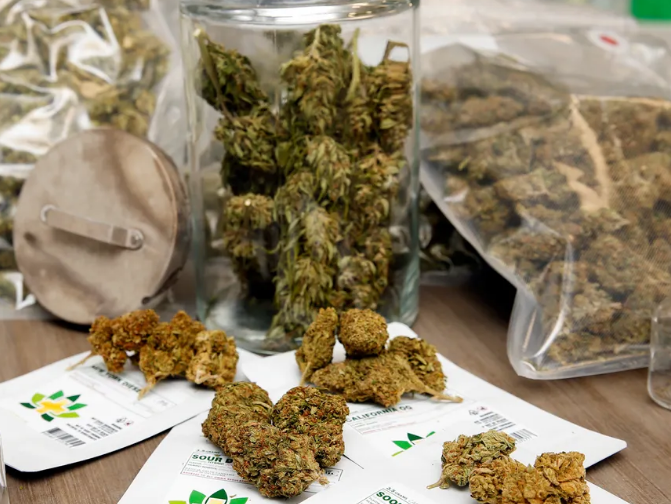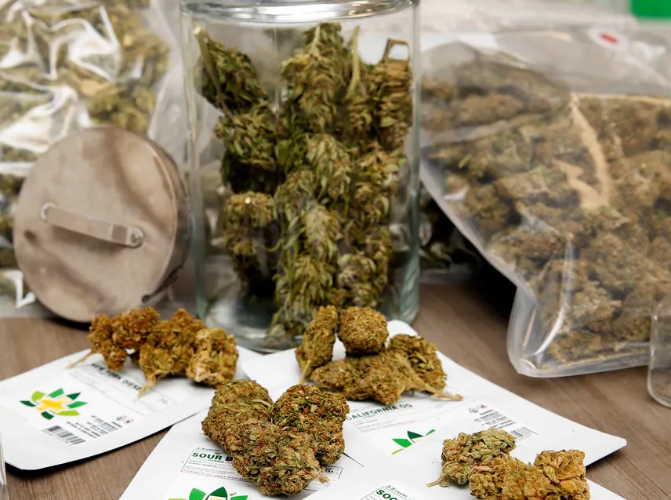A new study reveals that homes in states where marijuana is legal for adult use have seen a significant jump in value over the last decade and a half. The report highlights that the increase in property values has outpaced areas where cannabis remains criminalized, sparking debates about the broader economic impacts of marijuana legalization.
The study, conducted by real estate platform Clever Offers, sheds light on the ways in which legalizing marijuana has affected housing markets in the U.S. Between 2009 and 2024, homes in states that have legalized recreational cannabis appreciated by an average of $60,327 more than in states where the drug is still illegal. This difference in value growth has become a noteworthy indicator of how legal marijuana can impact local economies and real estate.
Major Value Gains in Legal States
The numbers don’t lie—homes in states with adult-use marijuana have seen a remarkable boost in value. On average, properties in these states have increased by $222,958 since 2009, a much larger sum compared to the $162,631 rise seen in states where cannabis is prohibited.
For homeowners in places like California, Colorado, and Oregon, these value gains have been tangible. Real estate agents have reported an uptick in interest from buyers seeking homes in regions with legalized cannabis, particularly in areas where the local economy benefits from the presence of dispensaries, production facilities, and the tourism cannabis draws.
In fact, Clever Offers found that as of 2024, the average value of a home in a legal state sits at $447,635. That’s nearly 40 percent more than the average home price of $320,904 in states where marijuana remains criminalized.
This stark contrast raises a few questions: What exactly is driving this housing boom in legal states? And what does it mean for the future of real estate in states where cannabis remains illegal?

A Closer Look at the Numbers
Here’s where things get even more interesting. The price difference isn’t just a trend—it’s a consistent pattern. Between 2009 and 2024, properties in legal cannabis states appreciated faster, even when other market factors such as interest rates, regional economic shifts, and overall housing demand were taken into account.
So why have these states seen such rapid property value growth? The reasons are multi-faceted.
-
Tax Revenue Boosts: States with legal marijuana have generated substantial tax revenue, which often gets reinvested into local infrastructure, schools, and public services. This can make neighborhoods more desirable and, in turn, increase property values.
-
New Economic Activity: Legal cannabis has brought new businesses and job opportunities, especially in the agriculture, retail, and hospitality sectors. With more people moving to these areas for work or investment opportunities, the housing market naturally sees higher demand.
But that’s not all. It’s also the intangible benefits that come with legalization. The stigma around cannabis use has slowly diminished, making these areas more appealing to a broader range of people—from retirees to young professionals looking for a vibrant, forward-thinking community. In essence, marijuana legalization has done more than just boost home values; it has reshaped the cultural and economic landscape of these states.
The Broader Implications
What does this all mean for states that are still on the fence about marijuana legalization? The numbers suggest that they could be missing out on a significant economic opportunity.
While cannabis remains illegal in many parts of the U.S., its financial benefits are becoming harder to ignore. Legal states are not only seeing an influx of tax dollars but are also witnessing greater prosperity across several industries. And as these states continue to benefit from a thriving cannabis sector, the gap between legal and illegal states in terms of economic growth is only likely to widen.
Could this be a catalyst for change?
For some policymakers, the growing economic evidence may prompt reconsideration of marijuana laws. With more and more states experiencing economic growth tied directly to cannabis legalization, the debate is shifting from moral arguments to more practical concerns: how can states harness the economic potential of this growing industry?
A Long-Term Trend?
Even if a state legalizes cannabis, will the housing market see sustained growth? It’s a question worth pondering. The housing market can be volatile, with interest rates and broader economic conditions always in play. But the sustained growth in property values in states where marijuana is legal indicates that this might not be a temporary trend.
States to Watch
So, which states are likely to see the most significant increases in home values over the next few years? According to the report, states that are currently considering legalization—such as New York, Michigan, and Illinois—could follow in the footsteps of their West Coast counterparts. These states are in prime positions to capitalize on the housing boom tied to cannabis, and it will be interesting to see how their real estate markets react in the coming years.
Here’s a quick snapshot of the differences in home value growth from legal and illegal states between 2009 and 2024:
| State Type | Average Home Value Increase (2009-2024) |
|---|---|
| Legal Marijuana States | $222,958 |
| Non-Legal Marijuana States | $162,631 |
As the evidence mounts, the real question becomes: Can other states afford to ignore the financial and social benefits that legalization could bring? If home values are any indication, it might be time for more states to reconsider their stance.




